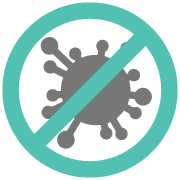
Advanced Certificate in Animal Care & Welfare

Live and Breathe Everything Animals? Us too!

QUICK COURSE DETAILS
Online with printed learner’s guides
24 months
Extensions available.
Anytime.
The curriculum is comprehensive, covering essential areas such as advanced animal handling, welfare principles, nutrition, and preventive healthcare. You’ll also learn techniques in behaviour modification, essential for those looking to specialise further. To customise your educational journey, the program offers elective modules allowing you to focus on specific areas of interest like bird, rabbit, rodent, reptile, dog care, kitten raising, or animal reproduction.
This certificate is your gateway to achieving higher proficiency and understanding in the animal care sector, preparing you for greater responsibilities and new career opportunities. It is an invaluable asset for anyone serious about making a significant and positive impact on the welfare and management of animals.
This non-accredited qualification, designed by the experts at ACAC, exceeds established industry standards for animal care related educational courses.

What Will I Study in the
Advanced Certificate in Animal Care & Welfare
This subject focuses on the crucial role of enrichment in enhancing the behavior and well-being of animals. It starts with an introduction to behavioral and environmental enrichment, exploring how these factors positively influence animal behavior. You will learn to identify and understand the roots of common maladaptive behaviours and discover effective strategies for their mitigation.
The subject emphasises the development of comprehensive enrichment programs tailored to meet the specific needs of different animals, aimed at boosting their physical and psychological health.
By the end of this subject, you will be equipped with the necessary tools and knowledge to significantly improve the quality of life for the animals in your care, making it an invaluable resource for anyone involved in animal management and welfare.
Explore the fundamental aspects of animal husbandry with this detailed subject that covers all you need to know about caring for animals effectively. Begin with an introduction to the core principles of animal care, tailored to meet the diverse needs of various species. Gain insights into selecting suitable housing and learn techniques for managing daily animal care responsibilities.
This subject emphasises the importance of maintaining rigorous standards of hygiene for both the workplace and the animals themselves, including grooming and cleanliness practices. You will also explore essential nutritional and hydration requirements necessary for animal health.
This subject is crafted to provide you with the essential knowledge and skills needed to ensure the health and well-being of animals across a range of care settings, preparing you to handle animal care responsibilities with confidence and competence.

This subject delves into the critical components of animal welfare, providing a deep understanding of the laws, social aspects, and ethical considerations that define the field. Begin with an exploration of animal welfare legislation and the societal influences on welfare practices.
Learn about industry-specific welfare concerns and the ethical frameworks that guide decision-making. Study comprehensive welfare models such as the Five Freedoms, Five Domains, and Quality of Life, which provide structured approaches to assessing and enhancing animal welfare.
Additionally, this subject introduces industry-specific assessment tools to evaluate the welfare standards in various animal care settings, ensuring you are well-prepared to advocate for and contribute to the wellbeing of animals.

Master the fundamentals of infection prevention and control in animal care environments with this essential subject. Starting with an introduction to basic microbiology, you’ll gain a clear understanding of how diseases are transmitted among animals. Learn to apply standard precautions effectively, including hand hygiene, waste disposal, and the use of specific cleaning chemicals to maintain a clean and safe environment.
The course details the critical aspects of maintaining workplace and equipment hygiene, ensuring food safety, and managing isolation areas to prevent the spread of infections. It further explores the vital role of vaccinations in controlling infectious diseases.
Topics covered include designing and implementing specific infection control recommendations, which are crucial for maintaining the health and safety of both animals and humans in care facilities. This course provides the tools and knowledge needed to establish and uphold high standards of infection control in any animal care setting.

Explore the comprehensive care and development stages of kittens in this detailed subject, essential for anyone involved in raising young felines. Begin with an understanding of the basic biology and behavioral traits of the feline species. Dive into the reproductive aspects, covering pregnancy and parturition, and learn how to support a mother cat and her newborns effectively.
The course is structured around the critical life stages of kittens: the Neonatal Period, focusing on care from birth to two weeks; the Transitional Period from two to four weeks; the Socialization Period from four to eight weeks critical for behavioral development; the Juvenile Period from eight weeks to six months when kittens grow rapidly; and the Adolescent Period up to twelve months, where they mature into young adults.
Topics also include practical skills such as maintaining proper hygiene, understanding feline body language to better interpret their needs, and essential healthcare. You’ll learn effective techniques for handling and restraint that minimise stress for the kittens. Finally, the subject covers best practices for finding new homes for kittens, ensuring they transition smoothly into their forever environments.
By the end of this subject, participants will be proficient in providing comprehensive care tailored to the developmental needs of kittens, facilitating their growth into healthy and well-adjusted cats.
This subject offers a comprehensive exploration of how animals learn and behave, equipping you with the knowledge to address and modify behavioral issues effectively. Start by understanding the fundamental principles of animal learning processes, which lay the groundwork for all behavior modification efforts. Delve into conducting behavioral consults, which are essential for assessing individual animals and tailoring intervention strategies.
Learn about the importance of socialization in preventing behavioral problems and providing preventative training advice to pet owners. Differentiate between normal and abnormal behaviors, gaining insight into what is expected versus what may indicate a problem needing intervention. This course also covers a range of behavior modification techniques that can be applied to various situations, including managing common behavioral issues like aggression, anxiety, and phobias in companion animals.
By the end of this subject, you will be equipped with the skills to implement effective behavior modification strategies, improving the welfare and quality of life for animals and their human companions.
This subject is designed to address the critical aspect of self-care and wellbeing for those working in the animal care industry. It emphasises the importance of maintaining personal health and ethical considerations within the workplace. You will explore emotional intelligence and resilience, understanding how these skills can help manage the mental health challenges commonly faced in animal care settings.
The subject also discusses the emotional toll when working directly with animals, particularly in distressing situations, and the unique challenges posed by interactions with clients or colleagues. Learn effective strategies for handling personal responses to challenging circumstances and developing a robust self-care routine.
By the end of this subject, you will be equipped to create a personalised action plan that ensures your wellbeing while fulfilling your professional responsibilities in animal care.
This subject provides an in-depth exploration of small animal reproduction, focusing on the anatomical, physiological, and behavioral aspects necessary for effective breeding practices. Start with a thorough understanding of reproductive anatomy and the related physiological processes and behaviors. Learn how to assess animals for breeding suitability and navigate the legislative landscape governing breeding activities.
Explore the intricacies of normal mating behaviors and the options available for assisted reproduction techniques. Gain critical knowledge about the stages of pregnancy and parturition, including how to manage and respond to common complications during whelping or queening. The course also covers essential post-partum and neonatal care to ensure the health and well-being of mothers and their offspring.
Further topics include identifying and treating diseases of the reproductive tract, understanding fertility issues, and methods for controlling reproduction, particularly in managing breeding programs. Additionally, a unique component of this subject is the consideration of reproductive practices for exotic animals, broadening the scope of knowledge for those involved in diverse animal care settings. This comprehensive overview equips you with the skills and knowledge to manage and support reproduction in small animals effectively.

Explore the comprehensive care and development stages of kittens in this detailed subject, essential for anyone involved in raising young felines. Begin with an understanding of the basic biology and behavioral traits of the feline species. Dive into the reproductive aspects, covering pregnancy and parturition, and learn how to support a mother cat and her newborns effectively.
The course is structured around the critical life stages of kittens: the Neonatal Period, focusing on care from birth to two weeks; the Transitional Period from two to four weeks; the Socialization Period from four to eight weeks critical for behavioral development; the Juvenile Period from eight weeks to six months when kittens grow rapidly; and the Adolescent Period up to twelve months, where they mature into young adults.
Topics also include practical skills such as maintaining proper hygiene, understanding feline body language to better interpret their needs, and essential healthcare. You’ll learn effective techniques for handling and restraint that minimise stress for the kittens. Finally, the subject covers best practices for finding new homes for kittens, ensuring they transition smoothly into their forever environments.
By the end of this subject, participants will be proficient in providing comprehensive care tailored to the developmental needs of kittens, facilitating their growth into healthy and well-adjusted cats.
This subject offers comprehensive insights into the various aspects of caring for dogs, catering to anyone involved in canine management, whether in a professional or home setting. Begin with an overview of different dog breeds, and their unique characteristics. Learn about specific housing needs to provide a safe and comfortable environment.
Explore canine behaviour and body language to understand common behavioural patterns and how they can be effectively managed through proper handling. This knowledge is crucial for ensuring both human and animal safety.
Dive into the essentials of general care, which includes grooming practices, and the daily management routines necessary to keep dogs healthy and content. Nutrition is another critical focus, where you’ll learn about the dietary requirements of different life stages and health conditions.
Health and preventative care are also covered extensively, including regular health check-ups, vaccinations, and the identification and management of common canine diseases. This subject equips you with a holistic view of dog care, ensuring you can provide the highest standard of care and contribute positively to the well-being of these loyal companions.
Available from 2025.
This subject is specifically tailored to provide comprehensive knowledge on avian care, addressing the unique requirements of various bird species. Starting with an overview of different avian species, the course explores basic avian anatomy to give students a foundational understanding of their physical structure. Key aspects of proper housing and husbandry are discussed to ensure safe and suitable living conditions. Environmental enrichment techniques are covered to enhance the well-being and behavioural health of birds in captivity.
The subject also delves into general healthcare, emphasising preventive measures and routine care to maintain optimal health. Nutrition is thoroughly examined to equip students with the ability to provide species-appropriate diets. Additionally, safe practices for the transport and handling of birds are taught to minimise stress and ensure safety during movements.
Explore specialised care techniques for rabbits and rodents, covering breed identification, anatomy, and tailored husbandry practices. Learn the nuances of rabbit and rodent behaviour to provide environments that promote natural activities. Master safe handling, restraint techniques, and proper nutrition for each species to ensure their health and well-being. This subject provides a focused approach to the effective management and care of these small but complex animals.
Dive into the fascinating world of reptiles with this subject designed to provide a thorough understanding of various reptilian species. Begin with an introduction to the Reptilia class, covering essential characteristics and adaptations. Explore specific details about common lizard, non-venomous snake, and chelonian species, enhancing your ability to identify and care for these animals properly.
Learn about the optimal housing and habitat setups that mimic natural environments and promote healthy living conditions. Environmental enrichment and understanding natural behaviours are emphasised to ensure reptiles remain active and engaged.
The subject also covers general healthcare practices, focusing on preventive care and common health issues faced by reptiles. Nutrition is discussed in depth, teaching you how to meet the dietary needs of different species. Lastly, safe transport and handling techniques are explored to ensure the well-being of reptiles during movements.
Leap in to learning today.

Enrol now with a first instalment of $499
Then simply pay
20 x $150/month or
40 x $75/fortnight.
That’s just $37.50/week!
Total:
Overseas Students Welcome!
Don’t live in Australia? That’s no barrier to studying with us. We’re more than happy to have you as a student, and we don’t charge huge international student fees either. Before enrolling with us, we’d like you to be fully informed. Please read the Overseas Student Information by clicking the button below.
LEARN MORE
Additional Information on the
Advanced Certificate in Animal Care & Welfare
To be eligible to enrol in this course, you must:
Ideally you will also have your own animals, and/or access to shelters or rescue organisations as a volunteer or employee, large or small. This will help you cement your learning.
Once we have confirmed your payment and enrolment (within a few days), you will receive an email containing your online access details. You can get started straight away! Your printed learner’s guides will be sent out within days.
PLEASE NOTE:
Prices current from 11th May 2024. All prices include resource fees, tuition costs, and administration fees. Additional fees may apply if you do not pass an assignment after two attempts, you need to re-enrol in a subject for any reason, or you need longer than 6 months to complete the course.
We will process your enrolment promptly and send out your resources. No waiting for intakes to start, you can just get studying.
Nationally Recognised Training (NRT), also known as accredited training, adheres to a specific training package that outlines the requisite skills and knowledge a student must demonstrate to earn a qualification. Each training provider creates their own course content and assessments to meet these standards.
Non-accredited training, on the other hand, is not bound by these predefined packages. Education providers are free to tailor the syllabus to address the unique needs of their students, crafting course content and assessments specifically suited to these requirements.
It is important to note that the distinction between accredited and non-accredited training does not reflect the quality of a course. It simply indicates whether the course follows a standardized training package. At our institution, all courses—whether accredited or not—are designed to surpass industry expectations in terms of the depth of knowledge provided.
This course does not include practical placement requirements. All assessment tasks can be done from home.
This distance education course is delivered through our Online Learning Centre, complemented by printed learner’s guides sent directly to you at no additional cost. The online format provides the flexibility to study around your own schedule and lifestyle without the need for on-campus attendance.
Upon course commencement, you will receive printed learner’s guides that provide a structured, step-by-step approach to your studies and prepare you for assessments. Additionally, our Online Learning Centre offers a wealth of extra study resources. You will also use this portal to submit your assignments.
The assessment for each subject involves a variety of tasks designed to evaluate your understanding and application of the material. These may include written assignments, online quizzes, and practical assessments, which can be completed at home through video recordings or live via Zoom.
This course is designed to be completed within 2 years.
Typically, students should plan to dedicate at least 5-10 hours per week to their studies. This ensures sufficient time for completing required readings and assessment tasks. However, if you are able to progress more quickly, you have the option to finish the course sooner.
Please note, additional fees will be incurred if you wish to extend your study period beyond the initial 2 years.
Ready to learn more? After you’ve completed this course you can move on to:
Internal credits would apply, bringing your costs down.